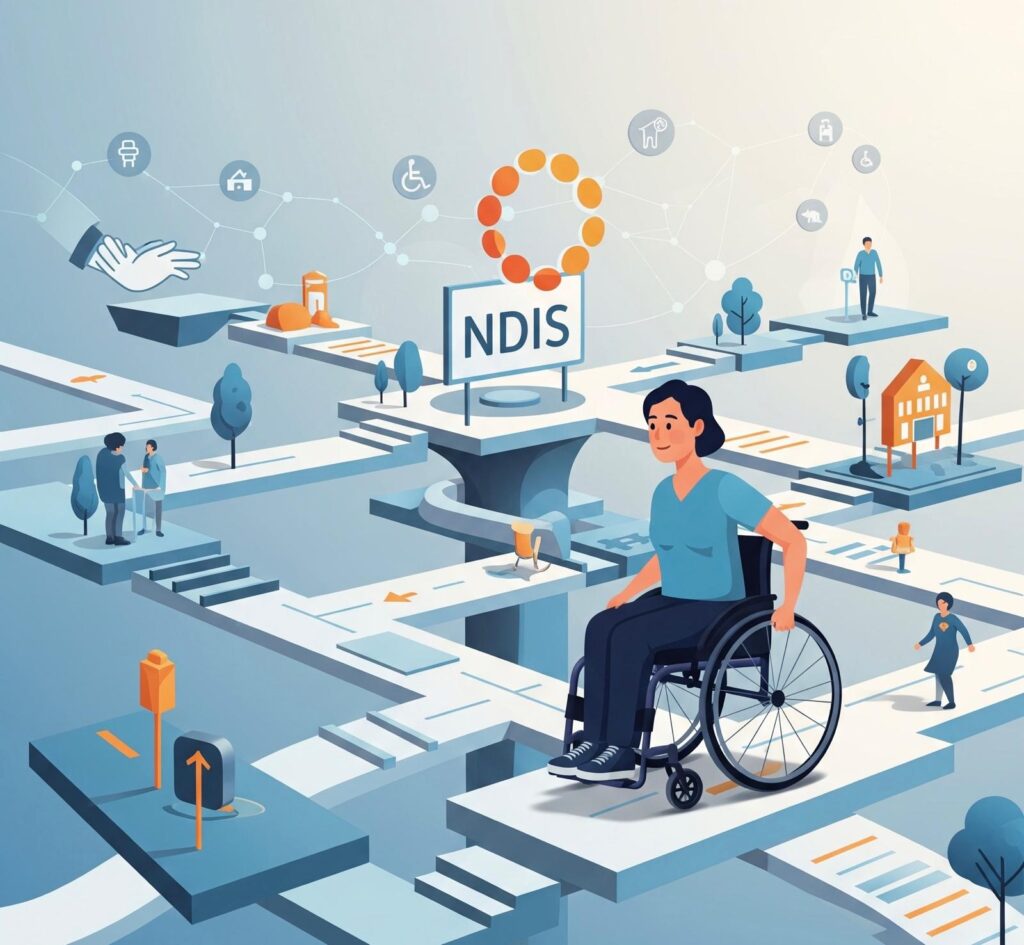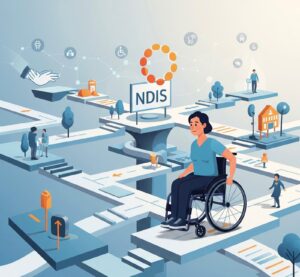The National Disability Insurance Scheme (NDIS) offers participants the flexibility to manage their funding in a way that best suits their needs. There are three main options available: self-managed, plan-managed, and agency-managed. Each management style offers different levels of control and responsibility, and understanding these can help participants make informed decisions about their care. This article explores the distinctions among these management options within the NDIS framework.
Self-Managed
Overview
Self-management gives participants the highest level of control over their NDIS funds. Participants who choose this option take responsibility for managing their NDIS budget, including selecting providers, paying invoices, and tracking their spending (National Disability Insurance Agency, 2020).
Advantages
- Flexibility and Choice: Participants can use any provider, not just NDIS-registered providers. This allows greater freedom in choosing services that best meet their specific needs.
- Timeliness: Payments can be faster because the participant manages the finances directly.
- Capacity Building: Managing their own funds can empower participants by building skills in budgeting and decision-making.
Disadvantages
- Administrative Burden: Participants must handle all administrative tasks, including paperwork and record-keeping, which can be time-consuming.
- Financial Responsibility: There is a risk of mismanagement of funds if participants are not careful with their budgeting and financial tracking.
Plan-Managed
Overview
Plan management involves a third party, known as a plan manager, who is funded through the NDIS to manage a participant’s funds. Plan managers take care of the financial administration, including processing invoices and making payments to providers (Mavromaras et al., 2018).
Advantages
- Reduced Administrative Load: The plan manager handles most of the financial paperwork, reducing the administrative burden on the participant.
- Flexibility: Like self-managed, participants can use non-NDIS registered providers.
- Professional Insight: Plan managers can provide advice on budgeting and fund allocation, which can be beneficial for participants unfamiliar with financial management.
Disadvantages
- Dependence on Plan Manager: Participants rely on their plan manager to handle payments and manage funds, which might lead to delays or issues if the plan manager does not perform effectively.
- Cost: Although the plan manager’s fee is covered by the NDIS, it does use a portion of the participant’s total funding package.
Agency-Managed
Overview
Agency management means the National Disability Insurance Agency (NDIA) manages the funding. Participants must use NDIS-registered providers who claim their payment directly from the NDIA (National Disability Insurance Agency, 2020).
Advantages
- Simplicity: There is minimal financial paperwork for participants, as the NDIA handles all payment administration.
- Security: Less risk of financial mismanagement since the NDIA oversees all transactions.
Disadvantages
- Limited Provider Options: Participants must use NDIS-registered providers, which can limit their choices.
- Less Flexibility: Less control over how funds are used, as participants must adhere to NDIA-approved expenditures.
Challenges in Obtaining NDIS Plan Management
While the NDIS presents a transformative opportunity for many, obtaining and managing an NDIS plan is not without its challenges.
Navigating the Application Process
Complexity of the Application
One of the primary challenges faced by potential NDIS participants is the complexity of the application process. The paperwork can be extensive and requires detailed personal, medical, and financial information. For some, particularly those with cognitive impairments or severe disabilities, completing these forms without assistance can be daunting (Mavromaras et al., 2018).
Understanding Plan Management Options
Deciding between self-management, plan-management, and agency-management involves understanding the nuances of each option. Participants often report confusion about the differences between these options and their implications for service access and flexibility. This confusion can lead to choices that may not best fit their needs (Productivity Commission, 2017).
Delays in Plan Approval and Review
Waiting Times for Approval
Another significant issue is the delay in plan approvals. Participants frequently encounter lengthy waiting periods before their plans are approved by the NDIA. These delays can postpone the receipt of essential services and supports, adversely affecting their health and well-being (Australian National Audit Office, 2020).
Inflexibility in Plan Reviews
Once approved, plans are typically in place for one to three years before a review is conducted. This inflexibility can be problematic if a participant’s needs change in the interim. The process for requesting an early review is often unclear and can be just as cumbersome as the initial application process (Mavromaras et al., 2018).
Geographic Disparities in Service Access
Rural and Remote Access
Individuals in rural and remote areas face additional barriers in accessing NDIS managed plans. There are often fewer service providers in these areas, and those available may not be NDIS registered, limiting the choice for agency-managed or plan-managed participants. The lack of local services can lead to increased travel time and costs, compounding the challenges for these participants (Foster et al., 2016).
Quality and Availability of Plan Managers
Shortage of Skilled Plan Managers
The effectiveness of a plan-managed NDIS arrangement largely depends on the quality of the plan manager. There is a reported shortage of skilled plan managers, particularly in specialised areas of disability care. This shortage can result in suboptimal management of participants’ plans, affecting the quality of services received (Productivity Commission, 2017).
Variability in Service Quality
There is considerable variability in the quality of service provided by plan managers. While some participants report excellent experiences, others encounter issues such as poor communication, lack of transparency in budget management, and insufficient support in navigating the NDIS system (Australian National Audit Office, 2020).
Conclusion
Choosing the right management option depends on individual needs, capabilities, and preferences. Self-management offers the most control but requires significant personal involvement. Plan management balances flexibility with support, while agency management offers simplicity and reduced administrative responsibilities at the cost of provider choice and control. Understanding these options helps participants tailor their NDIS experience to best support their disability needs. While the NDIS provides critical support to individuals with disabilities, the process of obtaining and managing a plan is fraught with challenges. These include complex application processes, delays in approvals, geographic disparities in service access, and variability in the quality of plan management. Addressing these issues is essential for improving the effectiveness of the NDIS and ensuring that all participants can access the supports they need to lead fulfilling lives.
References
- National Disability Insurance Agency. (2020). NDIS Operational Guideline – Plan Management. Retrieved from [NDIS website]
- Mavromaras, K., Moskos, M., Mahuteau, S., & Liao, P. (2018). Evaluation of the NDIS: Final Report. National Institute of Labour Studies, Flinders University.
- Australian National Audit Office. (2020). Audit report on the effectiveness of the National Disability Insurance Agency’s management of the National Disability Insurance Scheme. Canberra: ANAO.
- Foster, M., Mitchell, G., Haines, T., & Tweedy, S. (2016). Services and support for people with disabilities: Issues and challenges from three rural Australian perspectives. The Journal of Rural Health, 32(3), 216-224.
- Mavromaras, K., Moskos, M., Mahuteau, S., & Liao, P. (2018). Evaluation of the NDIS: Final Report. National Institute of Labour Studies, Flinders University.
- Productivity Commission. (2017). National Disability Insurance Scheme (NDIS) Costs, Study Report. Canberra: Productivity Commission.
How to get in touch
If you or your patient/NDIS clients need immediate mental healthcare assistance, feel free to get in contact with us on 1800 NEAR ME – admin@therapynearme.com.au.







